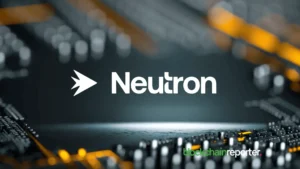
Hacken, a renowned blockchain security auditor, has unveiled its upcoming product launch, the DualDefense Flash Pools, set to revolutionize decentralized finance (DeFi) by combining real yield generation with a community-driven security model. The platform aims to address critical issues in DeFi by providing sustainable financial models and enhanced security measures, setting a new industry standard. Hacken’s new approach emphasizes the need for real utility and robust protection within the fast-growing yet vulnerable DeFi sector.
DualDefense Flash Pools: How It Works
The DualDefense model integrates multiple layers of security and financial opportunity for users. When a client requests an audit, Hacken conducts a comprehensive security evaluation of the project’s code. Following the audit, Hacken initiates a 30-day smart contract-based DualDefense Flash Pool. The Hacken team contributes USDC to this pool, and $HAI token holders are invited to stake their tokens.
This process is open to independent security researchers from the HackenProof platform, who are incentivized to conduct their own code reviews. If they uncover any critical vulnerabilities, they are rewarded with funds from the Flash Pool. This not only provides an additional layer of security for clients but also presents a financial opportunity for independent auditors and $HAI stakers alike. The pool offers APYs as high as 180%, providing high yields without relying on inflationary token emissions that can destabilize value over time.
A New Model for Sustainable DeFi
A key differentiator of the DualDefense Flash Pools is its focus on sustainable growth. Unlike many DeFi models, which often depend on unsustainable token emissions to generate yield, Hacken’s approach ties rewards directly to real market activities. This creates a system where returns are grounded in genuine economic value rather than speculative growth, marking a significant shift in how DeFi projects can achieve sustainability.
In addition to financial benefits, Hacken’s platform allows clients to receive enhanced security protection without any additional costs. By tapping into the community of white hat hackers, projects benefit from a thorough, multi-layered security audit that surpasses conventional methods, ultimately improving the safety of the DeFi ecosystem.
Prediction Markets for Audit Verification
One of the standout innovations introduced by Hacken is the first-ever prediction market linked to audit verification. In this model, participants essentially “bet” on the thoroughness of Hacken’s audit by staking in the Flash Pool. As more members of the crypto community stake their $HAI tokens, the size of the Flash Pool increases, motivating more white hat hackers to verify the project’s security.
This mechanism not only ensures competitive profitability for participants but also boosts the overall security of DeFi projects by incentivizing independent verification efforts. This novel approach provides real-world utility to prediction markets in a way that directly enhances the security practices of decentralized projects.
Commitment to Transparency and Community Involvement
Hacken’s CEO, Dyma Budorin, emphasized the company’s commitment to transparency and security in Web3. Budorin added, “We’re open to feedback in the Web3 world. We put our skin in the game, bold enough to reveal the results of our work. We’re committed to transparency and trust, striving to improve the industry by making bug bounties accessible to all, even the smallest projects that previously couldn’t afford it. A win-win-win situation for all parties involved.”
Budorin’s statement shows Hacken’s bold move to allow the community to review and verify their audits. By opening its audits to scrutiny from independent security researchers, Hacken not only enhances trust but also addresses the urgent need for improved security standards in DeFi.
Addressing the Growing DeFi Security Crisis
The DeFi industry has faced mounting challenges with security breaches, with over $1 billion lost in hacks and breaches in 2023 alone. This alarming trend continued into 2024, with more than $171 million stolen in Q2. Hacken’s DualDefense Flash Pools aim to tackle this issue by providing an extra layer of verification at no additional cost to the client. Independent researchers, incentivized by rewards from the Flash Pools, help identify vulnerabilities, offering an additional safeguard for projects.
By aligning the interests of users, developers, and investors, Hacken’s model promotes a positive feedback loop that enhances the overall security and sustainability of DeFi. This model also benefits smaller projects that may lack the resources for comprehensive security audits, offering them an affordable yet thorough solution.
Hacken’s Vision for DeFi Security
Hacken’s DualDefense Flash Pools are expected to have far-reaching implications for the DeFi space. The platform not only improves security but also provides a financial incentive for participants. As the DeFi market grows, so too does the need for robust security solutions, and Hacken’s model offers a scalable solution that could become the new standard for DeFi projects.
Moreover, Hacken plans to open bug bounties within DualDefense Flash Pools, even for budget-constrained projects, allowing the entire DeFi ecosystem to benefit from improved security standards. This forward-thinking approach is expected to protect every crypto user and promote healthier market growth.
Founded in 2017, Hacken has emerged as a leading force in blockchain security, conducting over 1,500 audits for more than 1,000 clients worldwide. With a team of over 150 global talents, including 60+ certified engineers and 10 Certified Cryptocurrency Security Standard Auditors (CCSSAs), Hacken continues to push the boundaries of security innovation in the blockchain industry.
With the launch of DualDefense Flash Pools, Hacken reinforces its position at the forefront of blockchain security, offering a groundbreaking solution that not only addresses the pressing issue of DeFi security but also promotes sustainable, real-world financial growth in the sector.









